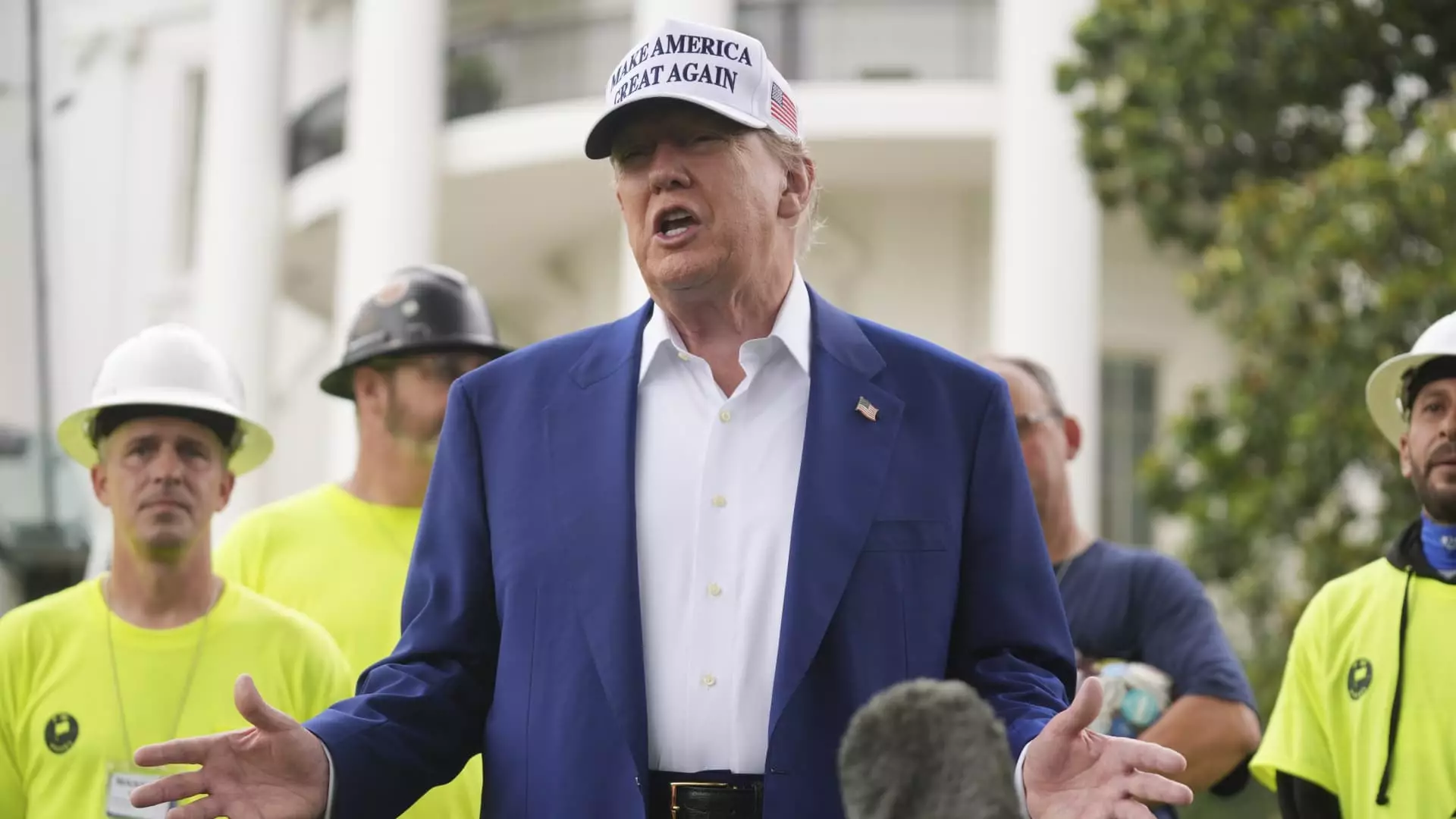In the politically charged atmosphere surrounding interest rate decisions and economic policy, President Donald Trump’s vitriolic critique of Federal Reserve Chair Jerome Powell encapsulates more than just a disagreement; it serves as a chaotic symbol of Trump’s approach to governance. Trump’s latest invective—dubbing Powell “stupid” and questioning his intelligence—reflects a more profound crisis in modern leadership where accountability is muddled by personal attacks. Trump’s rhetoric not only threatens the integrity of economic discourse but also risks destabilizing the economic policies that govern our complex financial landscape.
A leader’s relationship with an independent body like the Federal Reserve is crucial, especially during economic uncertainty. Trump’s insistence that Powell cut interest rates signifies more than a mere desire for lower borrowing costs; it showcases a fundamental misunderstanding of the Fed’s dual mandate—to promote maximum employment and stable prices. Calling for a drastic rate reduction without considering the systemic risks involved could lead to inflationary pressures that the U.S. economy is ill-equipped to handle. Lower interest rates might provide short-term relief, but they can also lead to long-term economic distortions—something Trump appears to dismiss in favor of immediate political gain.
The Hubris of Alternative Facts
In the lead-up to the Fed’s decision, Trump suggested the U.S. was missing out on a “golden opportunity,” citing Europe’s multiple rate cuts as evidence that the U.S. should follow suit. This reasoning, however, is steeped in selective reality. The economic landscapes of Europe and the U.S. are not directly comparable. The European economy is grappling with its unique set of challenges—rising energy costs, geopolitical tensions, and a slower recovery from the pandemic. To simply assert that the U.S. should mimic Europe’s monetary policy without recognizing these nuances demonstrates a lack of economic comprehension.
Moreover, Trump’s framing of Powell as a “political guy” seeking to undermine him underscores an alarming trend where officials are pigeonholed based on their perceived loyalties. Powell’s insistence on maintaining an independent position, resistant to political winds, is commendable. The constantly shifting political landscape should not dictate monetary policy, and Powell’s actions reflect an understanding that long-term economic stability relies on evidence-based decisions rather than impulsivity driven by political rhetoric.
The Burden of Personal Vendettas in Governance
What is particularly troubling is Trump’s assertion that Powell “hates” him. Such characterizations reveal a scenario wherein personal grievances overshadow professional obligations. This mentality poses significant dangers; it discourages collaboration on critical issues such as inflation, wage growth, and employment—areas wherein coordinated efforts between the federal government and the Fed could yield substantial benefits for the American populace.
The political climate surrounding monetary policy has transformed into a battleground where partisan animosity threatens objective governance. This fragmentation raises questions about the Fed’s ability to act independently while remaining insulated from the whims of a volatile president. No economic policy can afford to be based on personal vendettas rather than sound data, yet Trump’s rhetoric dangerously blurs these lines. If economic leaders act merely as a reflection of the sitting president’s mood, the repercussions could destabilize public trust in one of the most critical financial institutions in the country.
Elections and Appointments: Paving the Path to Recklessness
As discussions arise about appointing new leadership to the Fed, the situation intensifies. Trump mused openly about assuming the chair position himself, a remark that, albeit tongue-in-cheek, reflects a fundamental misunderstanding of the role’s complexities. Governance requires specialists who understand economic intricacies, not self-serving leaders who would prioritize political expediency over sound policy.
The economic ramifications of these politically motivated antics could be severe, especially as we approach another presidential election cycle. If leaders prioritize populist sentiments over fiscal responsibility, we risk crafting an environment where irrationality takes center stage, undermining investor confidence and financial stability.
In light of Trump’s insistence on attacking Powell, we face a pivotal moment. It’s essential to recognize that proper economic stewardship hinges on expertise and a commitment to principled leadership that transcends personal rivalries. The looming danger is not merely in the words spoken, but in the broader ramifications they harbor for America’s economic future.

